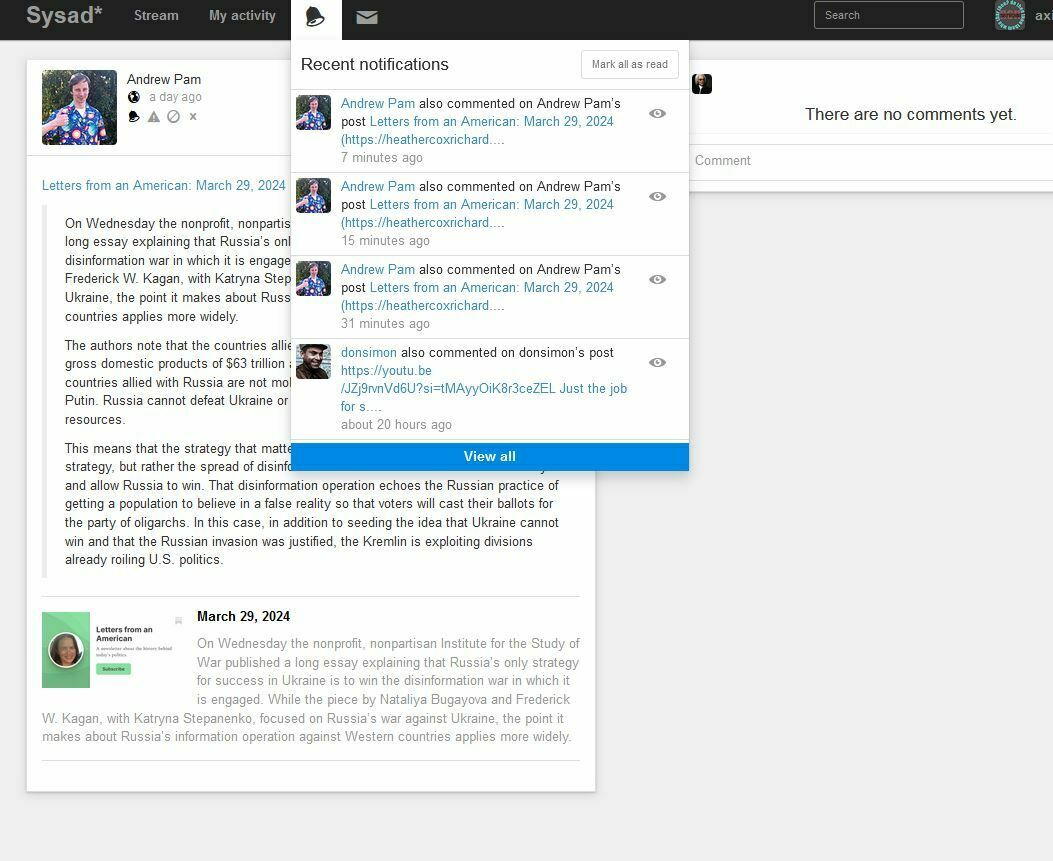Good article but I wanted to expand on it with a quote share with my view/advice for Gen Z - none of the following can even happen if you don't get out the vote to elect Democrats at all levels for all offices and hold them accountable with pragmatic progressive activism!
A bit of history for those not understanding the current calls to return the number of justices to 13...
The standard for prior expansion has varied over the years and is not defined in the Constitution. We only have a Chief Justice because it was mentioned in impeachment proceedings as necessary to preside over the Senate in the case of POTUS. Tracking changes over the years:
It began with the Judiciary Act of 1789 with 6 split to also preside over 3 region circuits at 2 each. They were not concerned about split decisions in SCOTUS because they were all Federalists.
In 1800 when Adams lost to Jefferson, the lame-duck Federalist Congress did everything they could to not give Jefferson a SCOTUS pick. He was a Democrat-Republican. Sound familiar? (Today's Republicans are Federalists and today's Democrats stand for democracy in our Democratic Republic aka Constitutional Republic. The Republicans in Obama's second term successfully blocked his SCOTUS pick and had vowed to block Hillary as well. They are opposing court expansion as they did with FDR.)
While Jefferson got one successor in due to retirement, Adams and the Federalists then went a step further. They passed the Judiciary Act of 1801 which decreased the number of Supreme Court justices from six to five. Jefferson's Senate/Congress repealed the act right away to get the number back to six but then one justice died making it five again.
There were increases in the number of circuit courts over the years increasing the number to nine by the Civil War. But Lincoln, added a 10th justice in 1863 to cement an anti-slavery court make-up.
After Lincoln was assassinated, Andrew Johnson (white supremacist who ran as a Democrat) was rapidly undoing Lincoln's anti-slavery efforts. To limit Johnson's power, Congress reduced the number of justices to seven in 1866 to keep him from adding white supremacists to SCOTUS. He was the first POTUS to be impeached but was not removed from office by the Senate.
In 1869, the last time political reasons were used to change the number of justices on SCOTUS, Republicans gave Grant two picks by increasing it to nine to overturn a SCOTUS decision that would have made paper money not recognized as legal tender upending the nation's economy.
Under the New Deal in the 1930's, FDR and his DoJ proposed a bill to add 6 new seats and required six sitting justices over 70 to resign pushing the number temporarily to 15 and expected to return to nine with a younger court. This was distorted by Republicans as "attempting to pack the court" to 15 seats with mostly FDR nominees - voted down by the Senate with a strong majority.
Congress can pass a law anytime with the agreement of the Senate to change the number of justices. The current proposal is to allow one justice for each circuit court of which there are 13. Another proposal is to increase to at least 11 since the current makeup is majority ultra-conservative Catholic handing down many "activist court" decisions that are not aligned with the majority of the country's activism and views as shown by legitimate polling and research.
I believe age is a factor as well to represent the voting age make-up. With Gen Z now the largest voting block, it is even more important IMO with regards to shaping the country's future as it relates to Judicial branch representation.
Full Disclosure I am a pragmatic progressive. My counter proposal would be to pass a compromise bill or series of bills, addressing many facets including SCOTUS, that upon passage:
1) Sets forth a federal election standard that all states must comply with for all federal elections including independent Congressional districting for federal elections only. (Preserves states rights.) Enforcement: FEC/DoJ/SCOTUS (Addresses voter suppression/gerrymandering discrepancies.)
2) Proposes a Constitutional Amendment establishing effectively non-partisan term limits that prevent anyone running for Congress/Senate/POTUS/VPOTUS and being appointed to cabinet positions or federal judgeships after age 70 and has a minimum age of 35 in addition to minimum job requirements per elected/appointed office. Enforcement: FEC/DoJ (Not allowed on all ballots in federal elections.)
3) Proposes a Constitutional Amendment to reform Electoral College in favor of: a non-partisan proportional apportioning of electors in every state; providing greater power and requirements for electors to do their job to prevent a corrupt or criminal President-Elect from being inaugurated; and providing ranked-choice voting removing the political power of the House of Representatives and SCOTUS from circumventing the will of the people appointing POTUS in the event of illness, death, or stopping the vote count if there is a failure of POTUS election to reach 270 electors. Enforcement: FEC/DoJ (Attempts to ensure the will of the people with one-person one-vote philosophy.)
3) Sets forth enforceable rules on conflict of interest that disallow lobbying and profiteering after leaving any federal office for five years including investing in anything or representing clients on anything they voted on while serving. Enforcement: DoJ/SEC (Addresses corruption and provides public transparency as well as discourages runs for office for any purpose other than representing constituents' interests.
4) Requires full financial disclosures, tax returns, and reporting requirements before being allowed to run and annually while serving. Enforcement: FEC/DoJ (Addresses corruption and provides public transparency for voters. Failure to comply with independent oversight results removal from office/required resignation at minimum. )
5) Sets forth public disclosure and process to verify experience/education/background check before being allowed to run. Enforcement: DoJ/SEC (Addresses corruption and provides public transparency for voters.)
6) Requires for full disclosure DoJ vetting of all nominees prior to election or confirmation. Failure of DoJ to perform these duties results in removal from office/required retirement and applicable non-profiteering/conflict of interest rules. Enforcement: IG/Congress (Increases oversight and enforcement to prevent/deter DoJ or POTUS corruption.)
7) Requires retirement at age 70, creating two vacancies on SCOTUS and unknown number of vacancies in the Cabinet/Judiciary/Senate/Congress, eliminates special retirement benefits afforded Congress/Senate/POTUS/VPOTUS/Cabinet/Judiciary members and provides enforcement powers to DoL and SSA. Enforcement: DoL/SSA Improves representation, addresses corruption incentives, and reduces wasteful federal spending.
8) Proposes a Constitutional Amendment to eliminate Secret Service protection, eliminate retirement benefits, and prevent being allowed to serve in any federal office or capacity for current and former officials (and family benefits) if convicted of criminal or civil violations. Enforcement: IG/DoJ Addresses corruption incentives and reduces wasteful federal spending.
9) Proposes a Constitutional Amendment requiring the whole of Cabinet and judicial appointments be representative of the general population. Enforcement: EEOC/SCOTUS
10) Add two seats immediately to be confirmed along with filling the two vacancies under Biden to fill vacancies of force retirement age. Enforcement: DoJ/Senate/Congress/SCOTUS (Failure of the Senate to comply is grounds for Congressional impeachment of Senators with Chief Justice presiding over the trial.)
11) Add two seats in 2025 to be confirmed in 2025 under the next POTUS. Enforcement: DoJ/Senate/Congress/SCOTUS (Failure of the Senate to comply is grounds for Congressional impeachment of Senators with Chief Justice presiding over the trial.)
Legislate one justice per circuit court. Enforcement: DoJ/IG/Congress (If new circuit courts are created, the number of justices increases accordingly.)
Provide transparent SCOTUS/Congress/Senate enforceable ethics rules, independent oversight, and impeachment bases for violations. Enforcement: Congress/Senate/SCOTUS (SCO/TUS presides over Senate impeachment trials.)
This offers a doable compromise for both parties (bipartisan) and has a sound basis in terms of representation as well as providing for one justice per circuit court. The net result would:
reduce the number of ultra-conservative justices out of step with the country;
provide correction of an injustice with the opportunity to fill at least one seat stolen from the people in Obama's last term (admittedly racist politics by McConnell);
reduce the impact of the confirmations under McConnell pushed through without vetting by the FBI on confirmation investigations;
align the court with the circuits;
establish an age limit to serve better aligned with retirement age;
and sets forth a process to better address any potential or existing corruption.
#SCOTUS #Progressive #Democrat #Justice #USPols
♲ Teri Kanefield - 2023-04-11 00:25:06 GMT
Here is what everyone knows, but the Democrats understand would be a terrible campaign issue: Once the Democrats have clear majorities in Congress and the White House, they can expand the number of justices.
Yes, this could create a reaction: The Democrats add 4, the Republicans, when they get power, add 4.
Here is why that is not bad: Adding justices dilutes the power of each justice, which is fine with me: Each has too much power now. With lots, they'll have to sit on panels.












